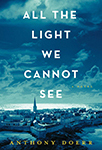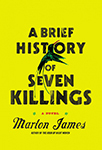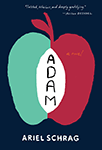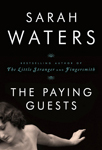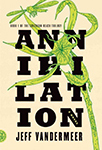by Jesse Ball
30% OFF at Powell’s »Tayari Jones: At first glance, Everything I Never Told You by Celeste Ng and Those Who Leave and Those Who Stay by Elena Ferrante couldn’t be more different. The former is a very subtle domestic novel set in an idyllic American college town, and the latter is a sprawling tale set mostly in an impoverished Naples, Italy. But on a closer look, there are two striking similarities: Both novels begin with a dead woman, and both examine the cultural changes of the 1960s and 1970s. Yet aside from these coincidences, there is little common ground. This is not apples and oranges, it’s more like apples and tractors.
Everything I Never Told You is described as a literary thriller, but I don’t buy it. It’s riveting, yes, but not adrenaline-soaked. Whodunit is essentially irrelevant by the time we get to the end of this beautifully crafted story about the tenacity of love and the relentless assault of difference and self-doubt.
Although the novel begins with “Lydia is dead,” the story begins when Marilyn, a white American student, falls in love with a young Chinese American professor. Lydia is their daughter, blue-eyed like her mother and dark haired like her father. Inside their color-blind home, race is irrelevant, but the rest of the world sees them as “Oriental,” a term that you might call “light racism” but that feels more wounding, somehow, than a pointed slur.
It’s heartbreaking to watch a household born of a defiant optimism become a festering ground for dreams deferred. Lydia’s mother goes to Radcliffe to become a doctor, but ends up a Betty Crocker wife. Her father wants to be accepted as American so badly that he becomes an expert on cowboys, but he is still treated as a foreigner in the land of his birth. Both parents accept that their own aspirations have failed, so they force their dreams upon Lydia. Meanwhile, their oldest son feels invisible to his mother, and their younger daughter, invisible to everyone. In the middle is Lydia, who “knew what [her parents] wanted so desperately, even when they didn’t ask. Every time, it seemed such a small thing to trade for their happiness.” But what was traded and for what gain?
After a good 50 pages, I found myself not caring about what happened to Lydia, but why it happened. The answer involves identity, race, class, sexuality, misunderstandings, and dumb luck. The ensuing misfortune is devastating, borrowing the inevitability of a Shakespearean drama while further interrogating the “tragic mulatto” narratives already questioned by the Harlem Renaissance.
On the other hand we have Elena Ferrante’s Those Who Leave and Those Who Stay, the third of her Neapolitan novels. The dead woman in its first chapter is Gigliola, a childhood friend of the narrator, who, like the author, is a novelist named Elena. Gigliola’s death causes Elena to recall the anti-fascist movement of the 1970s. Straddling the crossroads of the personal and political is Lila, Elena’s childhood friend, the unforgettable heroine of the novel in my hands, which I understood to be the novel that Elena—the character, not the author—is writing in the year 2010.
This novel is not exactly welcoming. For one, Ferrante’s Naples is not exactly a tourist destination, “[seeming] to harbor in its guts a fury that couldn’t get out and therefore eroded it from the inside.” Secondly, this is the third installment in a quartet. A newcomer to the series feels dropped in, like a gatecrasher at a dysfunctional family reunion. The ties connecting these characters do more than bind, they hog-tie.
(There are so many characters that the publisher kindly includes a guide at the front of the book to help you keep track of who’s who, and who’s who to whom.)
Elena and Lila are lifelong “friends,” but one wonders if something is lost in the translation. “Friends” doesn’t quite describe the relationship between women who manage to love each other deeply but do not seem to actually like each other. When Elena says, “I can protect myself,” Lila warns, “Not from me.” This is true even though Elena has left their neighborhood’s crude language and squalid conditions and become engaged to Pietro, a professor with a good name. She is the lucky one, but Lila is the remarkable one. Lila, who works in a sausage factory, is brave, coarse, and most importantly, neither self-conscious nor self-deluding. Elena is her mirror: striving toward respectability and vulnerable to every unkind remark hurled in her direction.
This is a book about many things—class, activism, fascism, art, capitalism—but laced through every scene is examination into the lives of women. There are princes, but none are charming; marriage is a mixed bag, providing material comforts as well as heartache and marginalization. Sex rarely brings pleasure, but rather disappointment, humiliation, and violence. Children bring joy but also anxiety. In other words, welcome to happily never after.
In choosing between these two melancholic novels, I had to decide whether I preferred Ng’s self-contained novel about isolation to Ferrante’s cacophonous book about the relentless entanglement of family, caste, friendship, and nation. I weighed Ng’s sentences, ornate as lace, against Ferrante’s prose, as ragged as a kitchen-table haircut. Ng’s care with each word elevates, raising one unhappy family to the realm of universal truth. Ferrante’s sentences are occasionally lovely, but more often they suggest that her subject matter is too urgent to worry about such trivialities as beauty. The choice was difficult—Ng’s world is complete, much as a drop of pond water held under a microscope reveals an entire universe. Ferrante, on the other hand, attempts to contain the entire ocean between the covers of a novel.
In the end, I chose Ferrante. This is not intended as the case for the “big” book over the “small” one. Those Who Leave and Those Who Stay is intense and maddening, just like Lila. And like Elena, I just couldn’t turn away.
John: I think Judge Jones nails Everything I Never Told You. While the opening of the novel does signal a kind of whodunit, it opens some far more interesting questions of why’dithappen that probe deeper and deeper into the interior lives of each of the members of this family. What we arrive with at the end is not the solution to a mystery, but an exploration of what happens when human beings collide with a hostile world. It makes for some satisfying and thought-provoking drama.
I have some quibbles about technique. Ng utilizes a kind of omniscient third-person narration that floats freely among the characters, and that freedom sometimes feels like a burden—that we have to check in with every character at a particular moment. I remember having to read the opening several pages twice as we move through the various points of view, starting with the authorial omniscience of “Lydia is dead,” before being handed off to Marilyn and then Nath, the brother. I didn’t feel fully grounded in the narrative until chapter two, when we’re invited into the past with the meeting of Marilyn and James.
Part of me felt as though we’d be better off with the stories being more clearly separated, so each perspective gets some time in the sun and we get a bit more of a Rashomon effect. To me, Ng’s technique introduced some slack into the writing as we transitioned from one character to another.
But there’re also some moments that are just brilliantly crystallizing and lovely, and my issues with the perspective are clearly a matter of taste.
Kevin: In olden times, back when “bard” was an actual profession and not flippant shorthand for either Shakespeare or Dylan, people on the receiving end of fiction never thought to ask, “Who is telling this story?” The answer was obvious: He is “the storyteller” and of course he would be omniscient.
The default expectation for the modern story, though, is that the narrator will disappear and the reader will have direct access to the inner monologues of the characters, usually one at a time. This is supposed to be more immersive, and I think it usually is. So when a writer pulls out the quill pen and uses a truly omniscient narrator (“Paul is thinking X, while across the room Virginia is thinking Y, but neither Paul nor Virginia knows that Daniel, in the kitchen, is gay”), it starts to raise questions in the reader’s mind: Who is telling me this? How the hell does she know all this stuff? If the narrator knew all along that Diane was in the hospital, why didn’t she know that Paul had cut her brakes? Once a reader is constantly reminded in this way that he is reading a made-up story, he can often feel manipulated.
Lots of writers pull it off, and brilliantly. I have often said that Lonesome Dove would be on my short list of nearly flawless novels, and Larry McMurtry drifts in and out of his characters’ heads like Geena Davis in the dinner scene from Beetlejuice. But the writer who chooses to take on omniscience takes on all the challenges that come with it.
I think Ng does omniscience pretty darn well. She’s after a kind of mood, where we have access not to the thoughts of one person at a time, but to the collective mind of this family. The way Ng writes them, they become kind of a unit. I liked that.
John: Elena Ferrante’s novels are relentless. They remind me of Edward St. Aubyn’s Patrick Melrose series, and like St. Aubyn’s work, they’re highly autobiographical, aren’t plotted, and tend to have an “and then” quality structurally that occasionally makes me wonder when things are going to pick up again.
But like the Melrose novels, they’re also irresistible. Once you get going it’s like you’re trapped inside the world and the only way out is through. The sensation for me is like binge-watching a show that’s good, but not all-time great, like, I don’t know, Gilmore Girls. Some episodes I like more than others, but mostly I just want to know how things are going to turn out.
Kevin: Unlike Judge Jones, I would have gone the other way and advanced Ng. I know Ferrante is a much beloved writer and I can understand why. It’s simply not my thing.
I admire the skill on display here. And, having decided I’m mostly indifferent to the story, I can try to reverse-engineer a reason why. For instance, I could say that I didn’t especially like it when Ferrante summarized a few months of events in just a sentence or two and sandwiched that between two closely observed scenes. That’s something I wouldn’t have minded in a book that I loved. The truth is I can’t articulate a good reason why I didn’t love it. And that’s OK. A book is not bad because I don’t like it. I’ve said before that there are many wonderful books I don’t care for. This might be one of them.
Still, I was one of those who left.
OK, it’s the end of the opening round, which means we get our initial peek at the Zombie results. First I’ll give an account for the uninitiated.
Before this year’s tourney began, we polled our readers and asked them to tell us their favorite book among the 16 on the shortlist. One week from today, when we’ll have narrowed the field down to just two novels, the two most popular books from among those that have already been eliminated will return to the competition to take on the presumptive finalists in the infamous Zombie Round.
The actual ballots have been buried in a Mojave Desert salt mine, but after every match from here on out, we will dig them up and announce which of the eliminated novels are currently in the running to come back as reanimated antagonists.
If the Zombie Round were held today, Dept. of Speculation by Jenny Offill and Station Eleven by Emily St. John Mandel would be our Zombie picks. This may change, however, as more books are eliminated as the tournament progresses.
Unfortunately, this also means we have to say goodbye to Adam; All the Birds, Singing; Wittgenstein, Jr; A Brave Man Seven Storeys Tall; Silence Once Begun; and Everything I Never Told You.
John: Poof. There go several of my favorites. Happens every year. Always painful.
Kevin: Tomorrow we begin the quarterfinals as David Mitchell’s The Bone Clocks takes on Marlon James’s A Brief History of Seven Killings.




